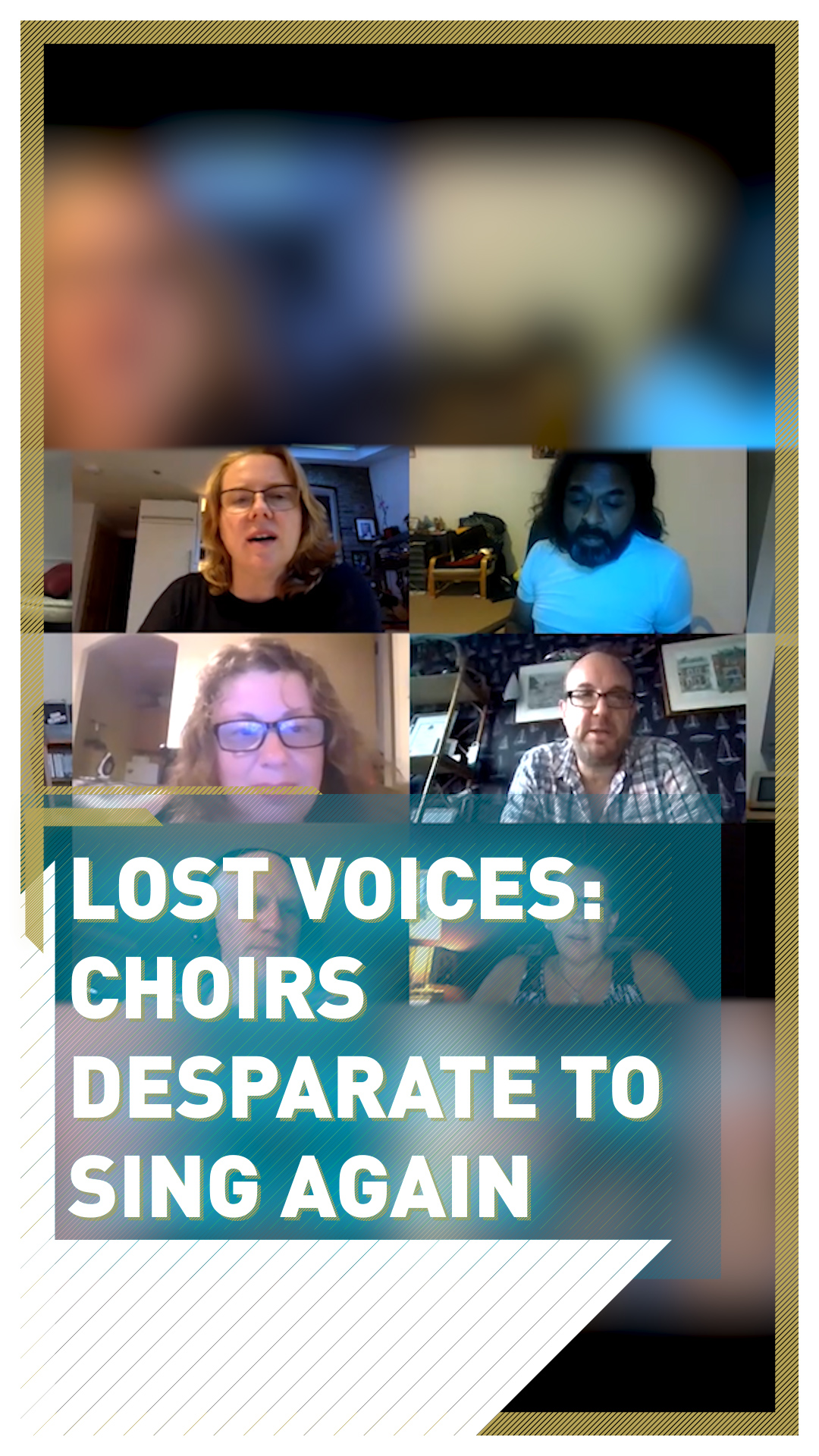02:45

In the early days of the COVID-19 pandemic, several clusters and some deaths were attributed to choirs singing together in the U.S. and the Netherlands. This quickly meant that governments across the world were advising their citizens against singing in groups.
The current UK guidance is that professional singers and musicians need to be three meters apart – making many performances effectively impossible. Amateur groups are advised not to sing together at all.
Now scientific research is underway in the UK to find out more about the risks of singing in groups. It's offering hope to choirs everywhere.
When lockdown began, choirs, both amateur and professional had a stark choice to make: whether to go online or stop singing altogether.
Many began the tricky business of singing alone using self-recording equipment and rehearsing using video software Zoom.
"There have been technology challenges," said Lis Rideal, the co-music director of Kitsch In Sync choir. "We've had to learn quite quickly how to make it work for us.
"And also we've realized that it's just not the same. You can't hear each other sing, so you don't know how to blend the sound and you can't see where people aren't very confident with areas. You're having to do an awful lot more of asking people to give their feedback themselves."

There are around 40,000 choirs in the UK who have been advised against in person performances. /CGTN
There are around 40,000 choirs in the UK who have been advised against in person performances. /CGTN
There are around 40,000 choirs in the UK; added to other musical groups and bands, an estimated two million people have been told to stop making music.
Professional tenor Declan Costello is by day an ear, nose and throat consultant. He's been working on a study, funded by the government, to measure the size and number of droplets and aerosol particles singing generates.
"It really wasn't clear whether the singing and the generation of aerosol had actually caused the clusters in the first place," said Costello, "so the governments really do need some data on which they can base their guidelines.
"And singing is important not only for the professionals who make a living out of it and all of the infrastructure around venues and restaurants and bars in venues and that sort of thing, but also for amateur singers and amateur players as well who are missing the camaraderie, the emotional, psychological, spiritual aspects of singing."
But until the research has been completed and the government change their guidelines, choirs in the UK will continue to rehearse and perform together the only way they can… online.
Video editor: Steve Chappell